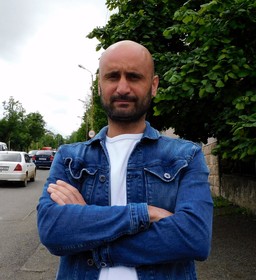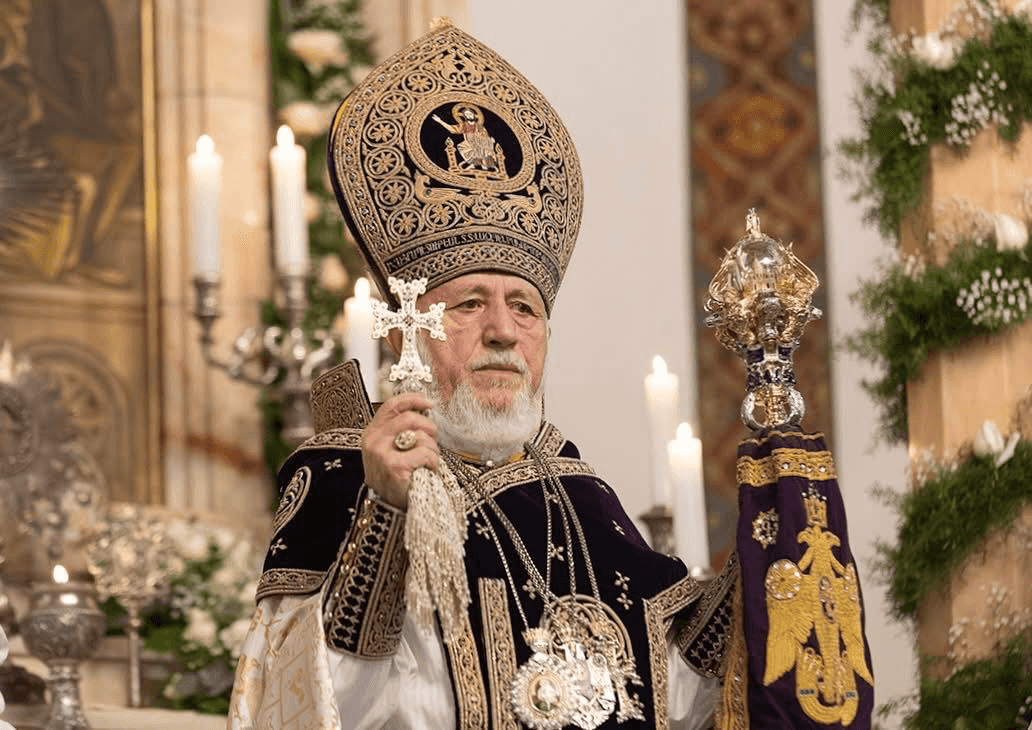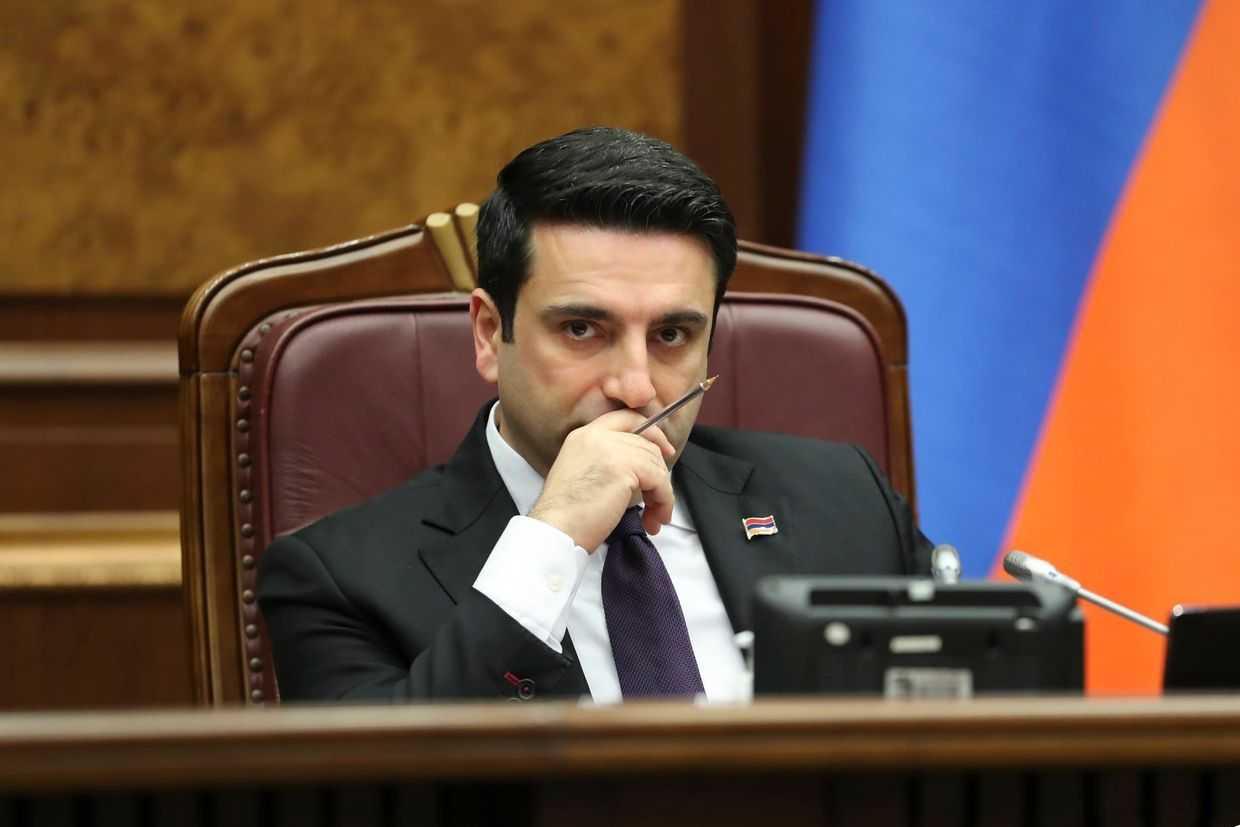
Tens of thousands of people gathered in the capital of Nagorno-Karabakh on Sunday to express concern over the fate of the region and its ethnic Armenian population.
According to the local authorities, more than 40,000 people attended Sunday’s rally in Stepanakert — a significant proportion of the region’s population, officially around 120,000.
The demonstration coincided with an extraordinary session of the parliament of Nagorno-Karabakh, which was broadcast live on the city’s Renaissance Square.
It also comes ahead of peace talks on Monday in Sochi between the leaders of Armenia, Azerbaijan, and Russia.
A statement adopted unanimously by the Nagorno-Karabakh parliament claiming to express the ‘collective will of the population’ said that any possibility of ‘forcibly annexing’ Nagorno-Karabakh to Azerbaijan would be ‘unacceptable’ and a violation of international law.
‘Artsakh [Nagorno-Karabakh] has never been and will never be part of independent Azerbaijan. This very idea should be the basis for the settlement of the Azerbaijani-Karabakh conflict’, the statement read.
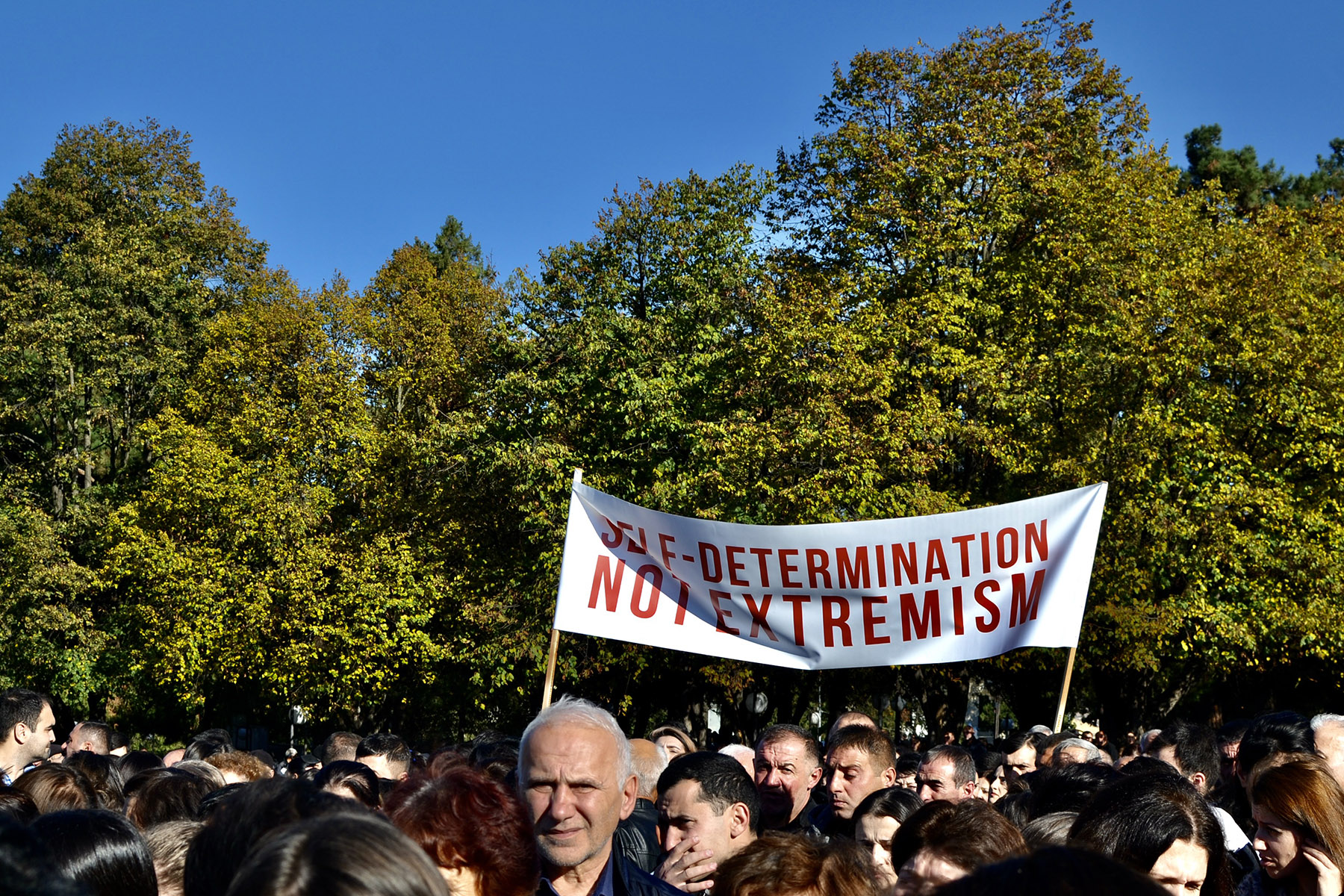
Addressing the crowd, the Foreign Minister of Nagorno-Karabakh, Davit Babayan, rejected any peace proposal that would mean Azerbaijan taking control of the region.
‘No game should be played behind people’s backs secretly’, he said.
‘We highly appreciate Russia’s role in the region’, he added. ‘When we say that the Russian people are fraternal, we want to announce to the world that this is not against any other country.’
Participants expressed a mix of fear and hope for the future.
‘Things have been good, then things became bad for us, but it’s going to be good again. Everything depends on us. If we all unite and fight for our rights, then our future will be good’, Yura Baghyan, a former resident of Hardrut told OC Media.
‘We, ordinary citizens — our fate is decided at a high level’, said Shura Papyan. ‘I don’t know, maybe Russia will help us. I am afraid that our fate will not be good but I want it to be so.’
‘I am an old man, I have already lived my life, I just worry for this new generation. Newborn babies have to live, right?’
‘They want to connect us to Azerbaijan in other ways, but we are not sure that there will be guarantees of peaceful, socially safe living, that’s why we came and demand independence from the international community’, Larisa Hovsepyan, a teacher from Nagorno-Karabakh told OC Media.
‘The people of Karabakh have seen and overcome many difficulties. The world, the European Union must listen to our voice. However, I place our hope on us first of all.’
Appeals to Armenia and Russia
The statement from the parliament of Nagorno-Karabakh also appealed to Russia to continue ‘its commitment to ensuring the security of the people of Artsakh.’
Around 2,000 Russian peacekeepers were deployed to Nagorno-Karabakh following the end of the second Nagorno-Karabakh War.
‘To strengthen it, we propose to introduce additional political and military mechanisms, taking into account the real existential dangers threatening the Armenians of Artsakh’, the statement read.
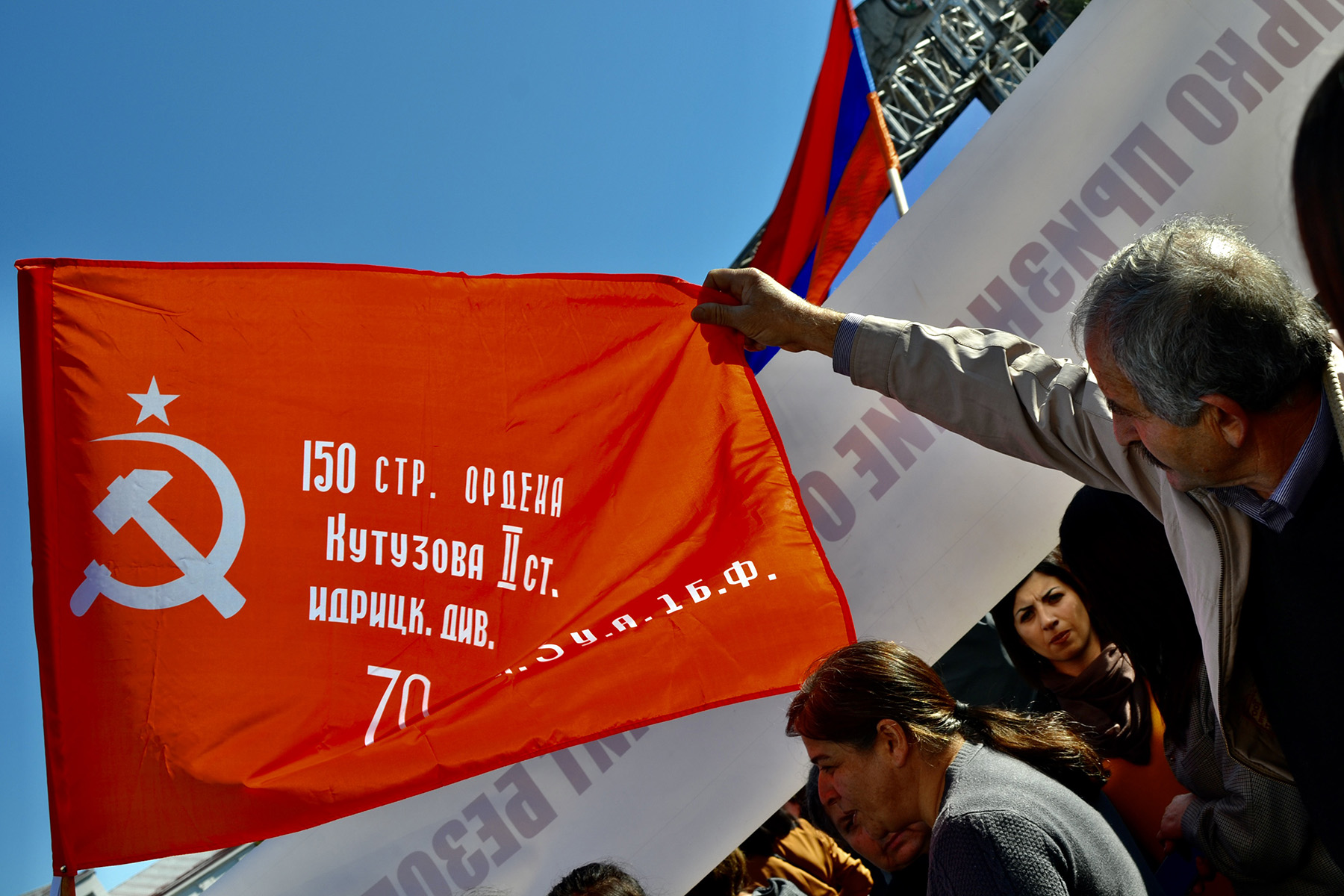
The statement also took aim at the Armenian government, stating that ‘no authority’ in Armenia had the right to ‘refuse the mission of ensuring the security of the people of Artsakh or to accept any document questioning the existence of the sovereign Republic of Artsakh’.
‘We urge the authorities of the Republic of Armenia to defend the common interests of the two Armenian Republics on international platforms, based on the existing fundamental documents, in particular, the Declaration of Independence of the Republic of Armenia and the historic decision of the Supreme Council of 8 July 1992’, referring to a commitment by Armenia to guarantee the security of Nagorno-Karabakh and not to recognise it as part of Azerbaijan.
Peace talks between Armenia and Azerbaijan have raised fears in Nagorno-Karabakh that Azerbaijan will take control of the region.
Public details of the talks have made little or no reference to the future status of Nagorno-Karabakh. Armenia has agreed as part of a peace deal to recognise the territorial integrity of Azerbaijan according to Soviet-era borders, in which Nagorno-Karabakh was a part of Azerbaijan. However, the Armenian authorities have insisted the Nagorno-Karabakh conflict was about rights, not territory, and that the people of Nagorno-Karabakh would still have the right to self-determination.
The talks have led to a cooling of relations between the authorities in Yerevan and Stepanakert, including criticism of Armenian Prime Minister Nikol Pashinyan for making ‘dangerous’ statements.
[Read more: Nagorno-Karabakh authorities slam Pashinyan for ‘dangerous’ statements]
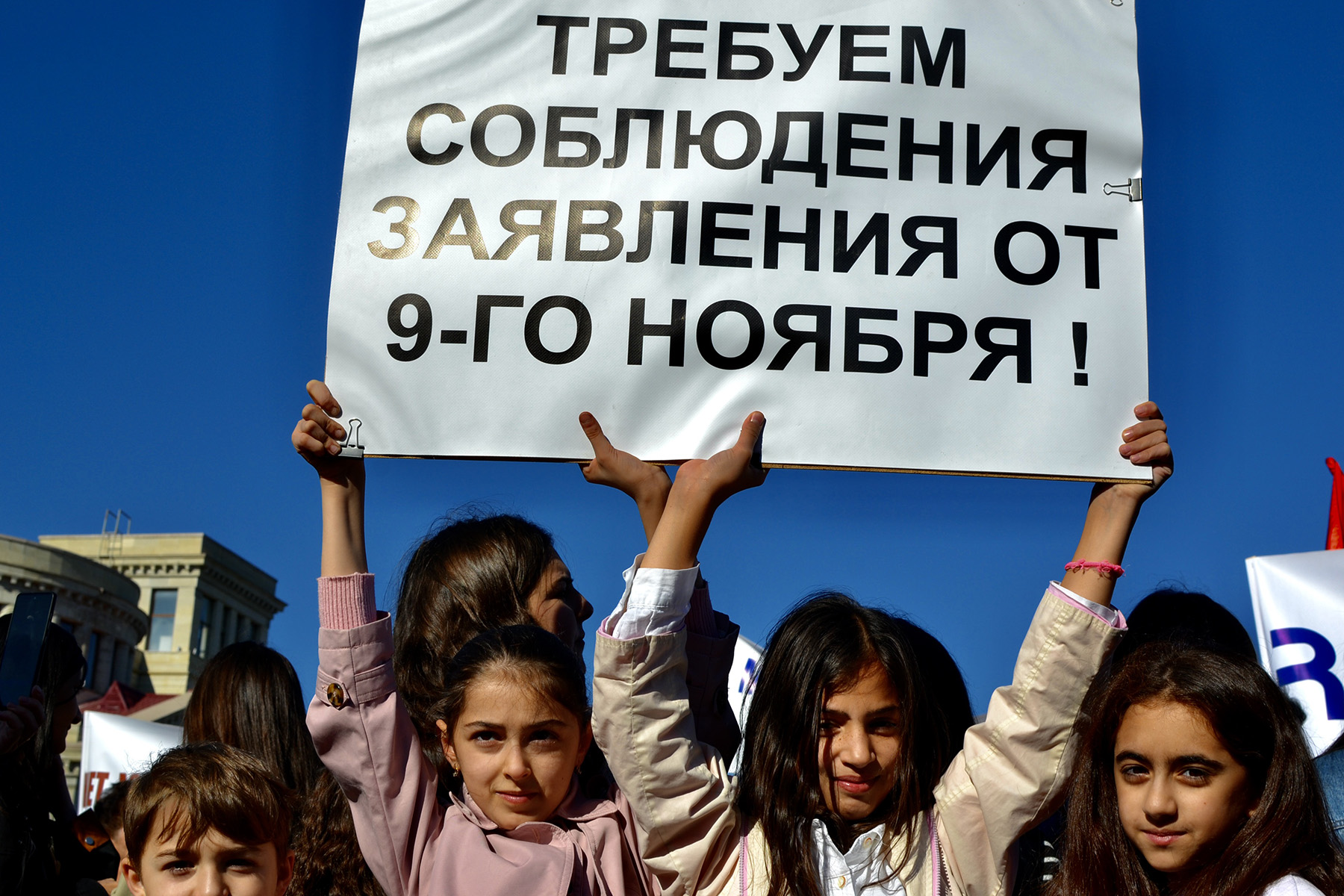
Photo: Marut Vanyan/OC Media.
Sunday’s protest also comes amidst an apparent rivalry between Russia and the West in mediating the conflict.
Speaking on the sidelines of a conference in Moscow on 27 October, Russian president Vladimir Putin was critical of what he called the ‘Washington plan’ for resolving the Armenia-Azerbaijan conflict, which he said would relegate the issue of the status of Nagorno-Karabakh to an internal affair of Azerbaijan.
‘If that is what Armenia thinks, then please, we will support whatever the Armenian people choose,’ Putin said. ‘If the Armenian people and the Armenian leadership think that Karabakh has some importance and that such importance should be taken into consideration in a future peace agreement, this is also possible’.
He also said that prior to the Second Nagorno-Karabakh War, Russia had suggested that Nagorno-Karabakh hand over five of the seven districts of Azerbaijan they controlled outside of the former Nagorno-Karabakh Autonomous Oblast (NKAO), before later ‘reaching an agreement with Azerbaijan’. He said Armenia had ‘choosen another direction’.
Pashinyan responded the following day by stating that Armenia had agreed to work on Russia’s proposals in early September, and expressing hope that Russia would ‘support its proposals’ in Monday’s meeting in Sochi.
In a public part of the meeting, Vladimir Putin, said that the Nagorno-Karabakh conflict ‘should be solved at some point’ and that he believed Pashinyan had the political will to do so.
A Russian hand?
The reactions to the protest with its size similar to the ones in 1988, when the independence movements started in Armenia and Nagorno-Karabakh, were different.
‘I have never seen so many people in my hometown Stepanakert’, Tigran Grigoryan, a Yerevan-based Political analyst from Stepanakert wrote on Twitter shortly after the rally started in Nagorno-Karabakh capital.
I have never seen so many people in my hometown Stepanakert. A huge turnout. pic.twitter.com/YJM2BLJpHE
— Tigran Grigoryan (@Tigartsakh) October 30, 2022
Some have suggested that Russia may have been involved in or encouraged Sunday’s demonstration, even going as far as to speculate that the authorities in Nagorno-Karabakh may apply to join Russia.
Arman Babajanyan, the head of the pro-government For Homeland Party wrote on Facebook that the rally had ‘nothing to do with Artsakh’. He said it was Russia’s attempt to warn Armenia ‘not to make a strategic turn, warning from where to expect pressure, from where the blow will come’.
‘Stepanakert today rejected any prospect of returning its agency and making independent decisions’, Babajanyan wrote. ‘Stepanakert announced today that he will not allow himself to be a part of the conflict’.
‘For months, Russian officials and experts have been telling me that they are a worried failure in the Yerevan-Baku exchanges would lead to more violence or even a new war’, Olesya Vartanyan, a senior expert at Crisis Group wrote on Twitter. ‘ “We’ll be handcuffed when it happens”, one Russian expert said, due to Russia being stuck in Ukraine, and its continued desire to sustain good relations with Azerbaijan’.
‘Will Putin succeed? It is difficult to see why Baku would agree to concede when it has an upper hand militarily and diplomatically. But “no one knows what Putin has in his ‘papochka’ [file],” one Russian expert told me recently with an offer to keep some space for surprises’, she wrote.
For ease of reading, we choose not to use qualifiers such as ‘de facto’, ‘unrecognised’, or ‘partially recognised’ when discussing institutions or political positions within Abkhazia, Nagorno-Karabakh, and South Ossetia. This does not imply a position on their status.


